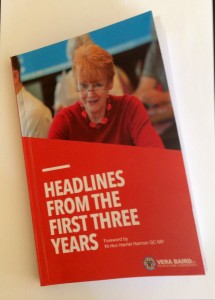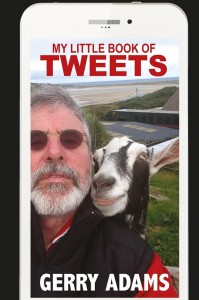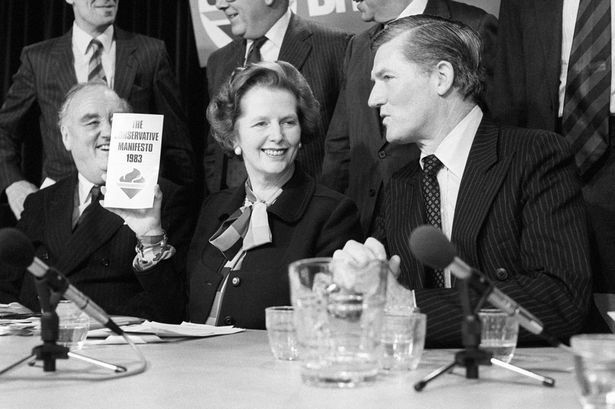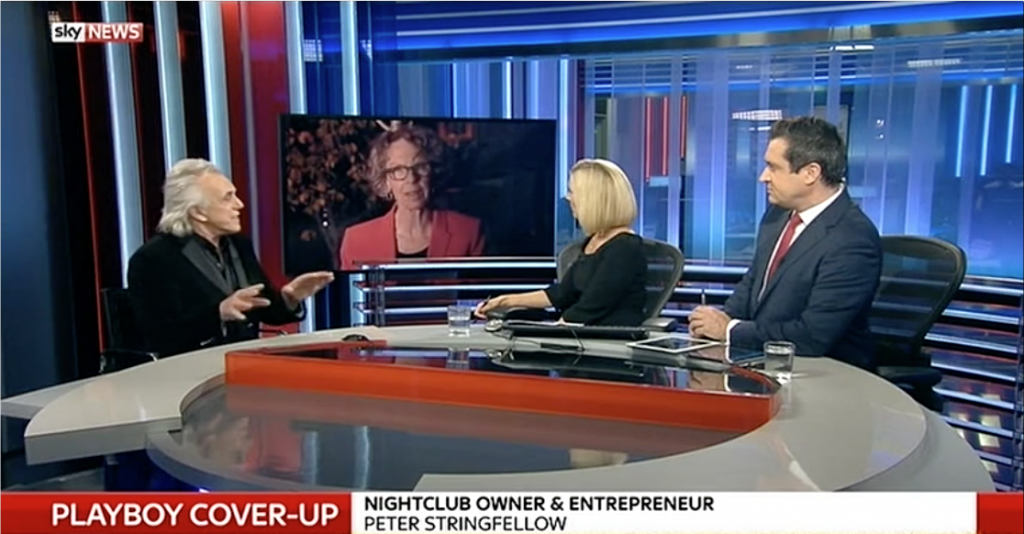Just when you thought it couldn’t get worse, transgender debates have got — if not worse exactly, then — nastier.
The description ’transphobic’ has been thrown at the Morning Star newspaper for running debates on transgender themes.
Actually, the paper is with the zeitgeist, consistently publishing positive reports on transgender people’s rights — as well as trans and feminist debates and differences. It is hard to imagine a ‘straight’ paper less deserving of the slur.
It is an index of just how hot this is that a mighty 300 people have signed a letter supporting the paper and repudiating the ‘phobe’ attack.
Transgender campaigns for recognition have been stunningly successful. Laws have been changed, minds and bodies and cultures are being changed; characters appear in successful TV series, from Coronation Street to Orange is the New Black….and transwomen have become stars:
Bruce Jenner’s re-incarnation as Caitlyn Jenner gets a Vanity Fair cover and an American Glamour Women of the Year award.
I’m not talking to you
And yet, and yet…. amidst these triumphs there is a wave of bullying that, in the name of of sympathy for trans people’s suffering and struggles out of marginalisation, seeks to whip, so to say, public debate into submission.
In this context, Miranda Yardley is a rare voice: a regular contributor to the great convo, including in the Morning Star, and a robust and rigorous advocate of feminism and the specifics of transsexualism, with much to say about the state of transgender politics.
She has exposed how the no-platforming of feminists alleged to be ‘transphobic’ and ‘whorephobic’ is bleeding into the transgender community itself.
Paris Lees has one of the highest profiles in the transgender pantheon. Here are some of Paris Lees’ contributions to these great debates.
Murder, mayhem and minding your words
Prof. Sarah Ahmed is an exponent of the ‘you are killing me/us…’ discourse.
And here is her passionate no platforming piece.
Trouble and Strife, a radical feminist journal, has published powerful critiques by Jane Clare Jones and Deborah Cameron.
In May the New Statesman and the London Review of Books published two long, wide and deeply thoughtful pieces on transgender themes by two smart public intellectuals and writers on gender, Sarah Ditum and Jacqueline Rose:
Sarah Ditum, the Staggers’ witty, always reflective columnist.
Jacqueline Rose, an LRB regular, Professor of Humanities at Birkbeck, a questing, often elegantly ambivalent writer.
My own participation is concerned with censorship, no platforming and the silencing of debate and dissent.
No to no-platforming
This is my response to comments on no platforming in the otherwise subtle essay by Jacqueline Rose:
‘I am pretty sure that, were I transsexual, I wouldn’t want [Germaine] Greer on any platform of mine,’ Jacqueline Rose writes (LRB, 5 May). But she isn’t transsexual and public platforms don’t belong to her, or to transsexuals or to anyone else: they belong to the collective we – the public. Public platforms aren’t places for chats between pals. They exist in a forum where we, the public, get to hear people, be in their presence, listen, learn, call them to account; a forum where we get to join in public conversation, where we do politics.
Rose understands that of course, and she states her position: ‘I tend to be opposed to no-platforming.’ But she sets Greer up as the demonic person who goes too far, who breaches Rose’s own tendency and warrants banishment. Greer is an easy target. Her opinions on transgender issues are described as ‘hateful’. ‘Hate’ and ‘phobia’ are part of the hyperbolic lexicon of trans debates. Another pioneering feminist activist, Julie Bindel, has been declared ‘vile’ and no-platformed in resolutions affirming trans rights passed by conferences of the National Union of Students. Bindel is cheeky, irreverent and occasionally offensive. She is also an adroit campaigner for justice for the most marginalised and maligned women. But the NUS does not allow students to hear her in person, or to be heard by her.
That is why the no-platforming of feminists in the name of trans sensibilities is so toxic: it not only silences some feminist voices and purges legitimate feminist discourse from some public platforms, it excludes students themselves from active participation, from challenging and changing their own and other people’s minds. I once invited an NUS women’s officer to debate that ban in public. No, she said. So, a feminist is consigned to the NUS proscribed list, along with neo-fascists.
More recently I suggested that one of Britain’s leading gay journals – I won’t name and shame – host a round-table. No, they said. ‘Why?’ I asked. ‘Are you frightened?’ Yes, they said. I suggested the same thing to an Oxbridge political journal. No, they didn’t think they would or could, they said, because university must be a safe space, like home. As if every home is safe! As if debate is dangerous.
I should declare an interest: Jacqueline and I are old friends, we have enjoyed agreeing and disagreeing with each other for years. But I find myself foxed: why in 15,000 words is Greer’s purported hatefulness flagged, but not the bullying that flays feminism? The sexual revolution wrought by feminist and gay activism has, of course, changed the political landscape in which trans lives can be lived. It co-exists with the commodification of gender archetypes and the reinstatement of seemingly polarised and parodic masculinities and femininities. All of this can be aired in feminist forums and, say, Mumsnet, but not in trans/feminist discourse in the NUS.
As I write, up pops the following notification from ‘youngradfems’:
Unfortunately we’ve had to take down the post ‘how I became a cis-privileged shitlord’ because the author was scared of being outed as a DISGUSTING TERF [trans-exclusionary radical feminist] BITCH if her fellow students found out about her radical feminist views. Yet another example of radical feminist young women being bullied into silence.
The NUS impulse to no-platform feminists who problematise transsexualism or prostitution, who attract the abusive designation ‘transphobic’ and ‘whorephobic’ (they often go together), has migrated to other venues and organisations.
In February 2015 Deborah Cameron and I gathered more than 130 signatures to a letter published in the Observer opposing no-platforming and the stifling of debate. Rose was not one of them. It was provoked by the Bindel ban, new purges, and threats to feminist students and to the comedian Kate Smurthwaite at Goldsmiths (she has expressed support for the ‘Nordic model’ – criminalising the purchase of sex); it also referred to the Germaine Greer kerfuffle, and the ugly harassment of the philosophy lecturer Rupert Read. He’d written a philosophical essay on transgender and feminist issues in 2013 but two years later he was subjected to a public thrashing. People threatened to picket his election appearances as a Green Party candidate. ‘There are few things more conservative,’ Sarah Brown, a transgender former LibDem councillor in Cambridge, wrote about Read, ‘than the view that trans people are dirty perverts who shouldn’t be indulged in our supposed delusion, that sex workers are wanton harlots who are certainly to be discouraged, and that masturbation is some kind of social ill that needs eradicating.’
Read, of course, held no such opinions. But that didn’t matter. Following relentless attacks on social media, including death threats, and with the Green Party itself thoroughly spooked, Read had to ‘retract’ things that he had never said in the first place. Brown, a leading trans activist, had form, a talent for spite. In a public riposte to a fellow Cambridge councillor, she wrote: ‘I invite you to suck my formaldehyde pickled balls.’ This field is bloodied with ‘hatefulness’.
Our ‘no to no-platforming’ Observer letter said: ‘You do not have to agree with the views that are being silenced to find these tactics illiberal and undemocratic. Universities have a particular responsibility to resist this kind of bullying. We call on universities and other organisations to stand up to attempts at intimidation and affirm their support for the basic principles of democratic political exchange.’ The signatories included scholars and activists, transsexuals, people for and against prostitution united by commitment to democratic debate and opposition to no-platforming.
One of the signatories was Mary Beard. She – like Deborah and I – didn’t know what all the signatories thought about the contested issues, but the day after the letter appeared she wrote on her blog that they included ‘many I am proud to be next to: Nimko Ali, Peter Tatchell, Lisa Appignanesi, Melissa Benn, Caroline Criado-Perez, Catherine Hall, Gia Milinovich, Sophie Scott, Francesca Stavrakopoulou, and loads more. Hardly the forces of gender darkness, unless you are a real reactionary.’ Yet, she continued,
since the letter was posted on the Guardian website … I have been bombard[ed] by tweets … I got sixty tweets in the space of about an hour from one person alone … Last night I went to bed wanting to weep … It wasn’t the force of any remark, it was the relentless pummelling of attack on the basis of extraordinary loaded, sometimes quite wrong, readings of the letter … You can see why a lot of women (and there is a gender issue here) might choose not to put their heads above the parapet.
Peter Tatchell was also bombarded – all the more galling for him because he is a strong advocate of trans people and sex workers. Many responses, he wrote, ‘were hateful and abusive: homo, foreigner, misogynist, paedophile, nutter and so on. Others were threatening: “I would like to tweet about your murder you f*cking parasite.”’ The pioneering trans campaigner Stephen Whittle blogged: ‘I was astonished to discover that those social justice campaigners, Peter Tatchell and Mary Beard, among others, had become the latest attack of the twittering trans-sirens.’ Was this ‘vicious streak’, he wondered, the ‘death of the inclusive, tolerant trans community’? The answer seems to be yes.
Sara Ahmed, professor in race and cultural studies at Goldsmiths, is adamant: ‘There cannot be a dialogue when some at the table are in effect or intent arguing for the elimination of others at the table.’ But speaking is not the same as pointing a gun, as Whittle reminds us. Ahmed organised a group response to our Observer letter, published in the paper a week later: ‘We do not agree that freedom of speech is freedom to speak unaccountably.’ But NUS no-platforming does, precisely, prevent speaking accountably: it not only proscribes speech but students’ active participation – in hearing and, crucially, being heard.
Feminism is nothing if not a politics that problematises gender and the construction of masculinities and femininities; it is bound to get into ‘gender trouble’. Who knows whether ‘What is a woman?’ is a feminist question or a patriarchal conundrum? Transsexuals, including Kate Bornstein and Miranda Yardley, for example, have put these questions on the trans agenda.
If feminism can’t make gender trouble then it can’t talk about anything, indeed it is silenced by Ahmed’s authoritarian notion of ‘dialogue’: language loses meaning and politics is shot.
Beatrix Campbell
Beverley, East Riding






